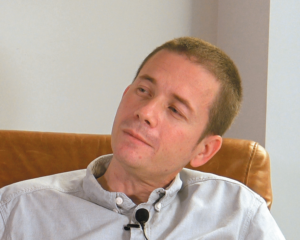
Editorial: Tensions at Opera Royal de Wallonie-Liège Reveal Questionable Leadership from Stefano Pace
By Dejan Vukosavljevic(Credit: © Jacques Croisier-Opéra Royal de Wallonie)
This article was written in collaboration with Editor-in-Chief David Salazar.
In February 2021, the Opera Royal de Wallonie-Liège was shattered by the premature death of its General and Artistic Director Stefano Mazzonis di Pralafera. Mazzonis di Pralafera held the position for 14 years, and thus inevitably left a considerable stamp on the opera house, many productions, as well as the growing and maturation of a new generations of young singers. He was known for numerous productions, including Puccini’s “La bohème,” “Madama Butterfly,” and “Manon Lescaut;” Verdi’s “Nabucco,” “Otello,” “La Traviata,” “Don Carlos,” “Aida,” “Rigoletto,” and “Macbeth;” Donizetti’s “Anna Bolena” and “L’elisir d’amore;” Massenet’s “Manon;” Rossini’s “Il Barbiere di Siviglia” and “L’equivoco stravagante,” among many others.
In June 2021, the Board of Directors and the General Assembly of the Opéra Royal de Wallonie-Liège chose architect Stefano Pace to succeed late Mazzonis di Pralafera as the new General and Artistic Director. Pace has considerable experience in the field of artistic management, having worked at the Opéra National de Paris, the Palau de les Arts Reina Sofia in Valencia, the Teatro Massimo Bellini in Catania, and the Royal Opera House Covent Garden.
The new director began his tenure with a bang. Last week, news arrived that two tenors, taking on the roles of Arturo and Normanno, were dropped from the production of Donizetti’s “Lucia di Lammermoor.” The brief initial explanation that came from the opera house quickly resonated around the world of European opera: singers were sacked because they allegedly didn’t satisfy the high artistic criteria needed for the successful performances.
Outrage quickly built up both in the Belgian media and on social networks. Frédéric Degroote, the Director of the Festival Les Nuits de Septembre in Liège, called the decision “indecent and violent,” and said it would be interesting to hear how the theater would justify it. There was little understanding for the opera house.
“In order to ensure the highest artistic quality of the production of ‘Lucia di Lammermoor,’ the General and Artistic Director of the Opéra Royal de Wallonie-Liège has decided to replace two soloists, considering that they do not meet at the moment the quality necessary to ensure the high level of the production,” said the opera house in a statement sent to OperaWire. “Doubts arose about these two artists during the first rehearsals. These doubts were confirmed during the Sitzprobe. Therefore, the General and Artistic Director made the difficult decision to replace the artists concerned. Finally, the Opéra Royal de Wallonie-Liège would like to state that, contrary to what has been reported in some media, the rumor that the Assistant to the Artistic Direction of the ORW had been an artist’s agent or worked for an artistic agency is absolutely unfounded.”
Tenor Maxime Melnik, who was supposed to perform the role of Lord Arturo Bucklaw, offered his version of the event to OperaWire.
“The rehearsals for ‘Lucia di Lammermoor’ began on Oct. 25. There were absolutely no signs, whatsoever, that the conductor Balsadonna or anyone in the artistic direction of the opera house had any doubts about my performance,” he said. “The rehearsals were going as planned. When the Sitzprobe came, the Director, Pace, was watching it. After it ended, he met conductor Balsadonna, and the decision of my replacement and a replacement for the colleague tenor Zeno Popescu obviously was made at that point.
“On Nov. 13, one day after the Sitzprobe, I went to the theater because at that point I still haven’t received any official statement about the replacement. There I met with the conductor Balsadonna and director Santucci. I was still in the theater when I was approached by the Veruska Reho, the Assistant of Director Pace. She told me that the opera house is actually doing me a big favor by not letting me sing the role of Lord Arturo, because I would certainly get the bad reviews. The Director of the Human Resources was there with us,” explained Melnik. “Later on, Reho had a meeting with all of the artists onstage, and said that situations like this might more frequently repeat in the future. Reho stated that the reason for this is a need to examine the choices of the previous artistic direction. She added that the management expects a full support of all the departments in the opera house during this process.”
To make things more complicated, the Music Director of the Opera Royal de Wallonie-Liège, Speranza Scappucci, decided to decline the extension of her term as the Music Director beyond the 2021-22 season. Scappucci previously withdrew from the production of “Lucia di Lammermoor” due to surgery and by all accounts, her decision to decline an extension is not related to this incident. However, the timing of that announcement is quite curious.
The situation brings up a number of questions regarding the new leadership’s management of its artists. First off, Melnik and Popescu were dropped from the production five days before opening night. If there were really doubts about their ability to keep up with high artistic standards even during the first rehearsals, then why did the opera house wait for so long to make that clear and find the appropriate replacements? Second, the statement that was offered to the press targeted the young singers in an unusually harsh manner. Couldn’t this be done in a more elegant way, so not to stir the muddy waters and also communicate the issue clearly and without angst?
The replacements for the two tenors in their respective roles are Oreste Cosimo (house debut) and Filippo Adami. The current run of “Lucia di Lammermoor” is a revival, with the premiere having taken place in the 2015-16 season, with two different singers in the roles of Lord Arturo Bucklaw and Normanno (Pietro Picone and Denzil Delaere). This by no means implies that Cosimo and Adami are not suitable for the roles; it just reflects the fact that the opera house did not contemplate to ask singers that performed at the premiere to do it again.
Finally, Melnik was also dropped from the production of Rossini’s “Otello Ossia Il Moro di Venezia” only eight days before the start of rehearsals. While he was set to take on the short but not inconsequential role of Arturo in “Lucia,” he was set for the far more crucial one of Iago in the Rossini opera and in that case, the tenor wasn’t given a chance to show his artistic abilities. Instead, the timing of these choices point toward a preemptive sacking aimed at offering additional justification for the “Lucia” decision. To make things more interesting, Melnik has yet to receive a bad review for his performances with the company. A production of Verdi’s “La Forza del Destino” was a resounding success in September 2021, and Melnik got very good notices for his work in the role of Trabuco.
When all of these are taken into account, one unpleasant conclusion arises, which also reveals a focal weakness of the opera industry today. The actions of the new management at the opera house come off as new leadership trying to make its stamp by blowing up the existing structure and achievements built up by the previous administration. This could frequently go very deep and provoke seismic movements that are not really of benefit to anyone: talented young singers get caught in the crosshairs and frequently suffer outsized consequences to their careers.
The arrival of the new administration at the Wiener Staatsoper after the departure of Dominique Meyer saw over 50 percent of the resident ensemble leaving the opera house. The sources at the time were speaking of huge artistic changes, and some really talented young singers have not been seen at the Wiener Staatsoper ever since. Even if there were no intention to undo the Meyer’s era achievements, the replacement of such a huge part of the resident ensemble was a seismic shift and undeniably altered the artistic output. Based on comments already related here, one can infer that this seems to be a similar direction Pace intends for the company.
Obviously, the argument here would be for a seamless continuation with gradual transitions, which is best for both the companies and performers, especially during such a tumultuous time (new leadership following a period of extended shutdown due to a pandemic). Perhaps what becomes most problematic in the context of this situation is who this was done to and how.
Both Melnik and Popescu are not established stars, and Melnik is a very young artist in the midst of building a career. Meanwhile, Popescu has been with the company since 2017 and has had an extensive career in Belgium since 2005, per Operabase. While they have accumulated some solid experience at top houses in Belgium (including La Monnaie and Opéra Royal de Wallonie-Liège), this public flaying by a notable company accusing them of artistic shortcomings is likely going to have a major impact on their careers moving forward. It’s one thing for critics to make comments, but another for a professional company to so openly discard an artist and question their worth, especially because there was no indication that this was brought about by unprofessional behavior aside from “doubts.” And what’s more, these artists have a history with the organization, a reportedly successful one at that.
We know of artist disagreements happening and often hear about them, but we often hear about differences in approach or other kinds of questionable behaviors. But it is rare to hear a company openly complain about an artist’s worth. Where Melnik or Popescu progress (or don’t) from here will be as a result or in spite of Pace’s actions. And what’s more, Pace’s means of communicating his decision not only took away from the work of the entire team at large, but it unnecessarily thrust two other artists, Adami and Cosimo, into the spotlight with added pressure to their performances (imagine being Cosimo and knowing that the circumstances surrounding your debut performance are already getting more press than the soprano taking on the title role). Some people will undoubtedly be watching them closely now to make sure they meet “artistic standards” that warranted the infamous firing of two other artists.
This isn’t to say that companies shouldn’t do what’s best for their artistic standards. Far from it. Of course Pace has every right to bring in “his” people. But what happened here is a sloppy transition from a new administration exposed by questionable communication skills with artists and the media. Given the vagueness of the “doubts” and no indication of subsequent lack of professionalism or misconduct on the parts of Popescu or Melnik, one can’t help but wonder why the production couldn’t go on with the two tenors in the roles of Normanno and Arturo and why any desire to cut ties with them couldn’t wait for AFTER the show was completed. It reeks of very poor timing. And now this run of performances and everyone associated with it will be tied to it.
As a result, the company itself will now be held to new standards by the audience to see if Pace’s mandate and artistic needs are really so good that he needs to take down singers publicly to impose it. Maybe the attention is exactly what he craves, but it’s the risk he takes.
Sometimes being sensitive and aware of the human aspect of circumstances is more important than the “artistic product.”
Categories
Editorials


